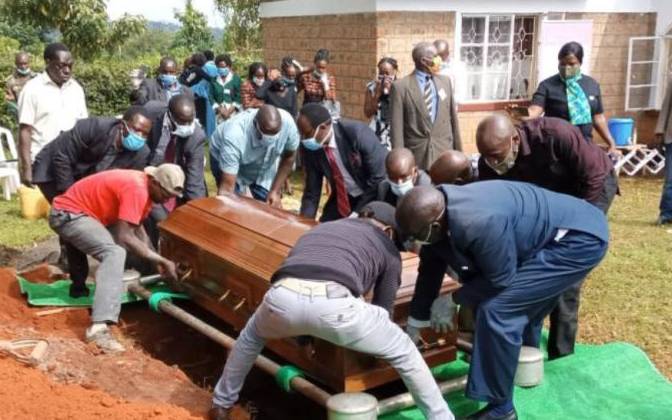×
The Standard e-Paper
Home To Bold Columnists

Mourners lower the casket of Ken Walibora at Huruma Bonde village during his burial in Cherangany, Trans Nzoia County. [Osinde Obare, Standard]
“This is the power of creative writing – that it gives you the power to imagine beyond the ordinary. You could be writing about Nairobi, but re-imagine it; it even could be a Nairobi that is hanging in the clouds!”